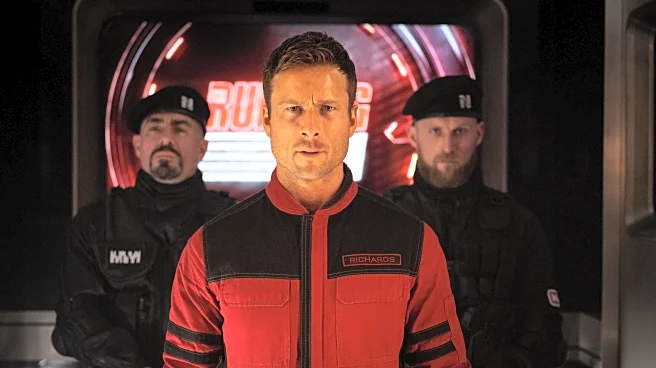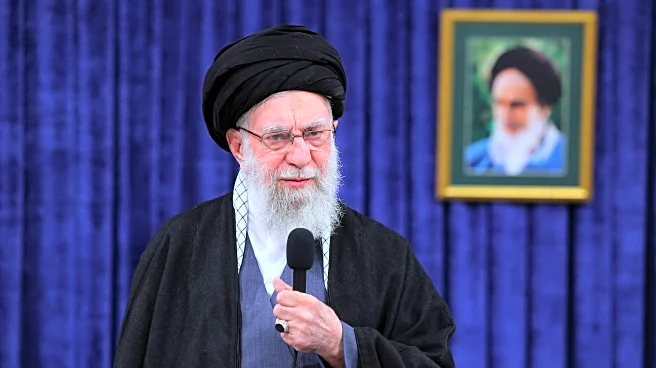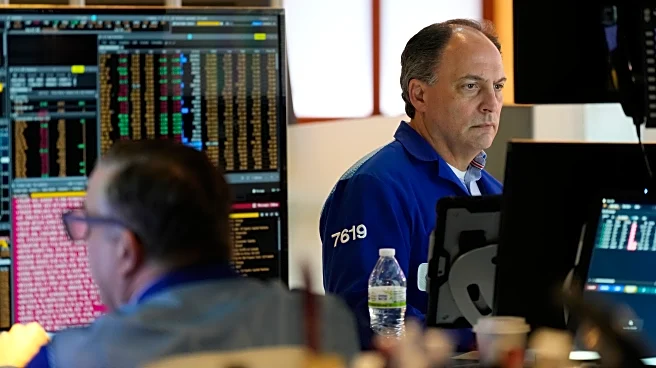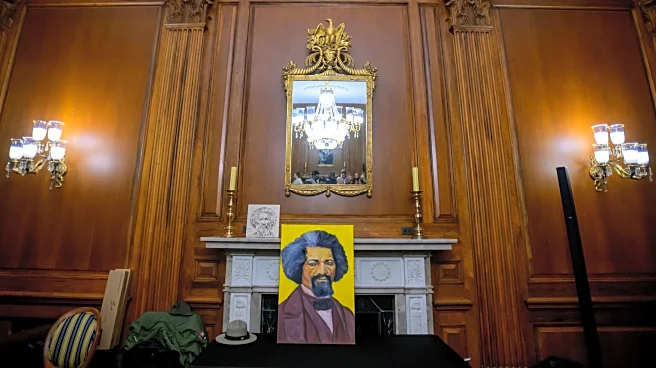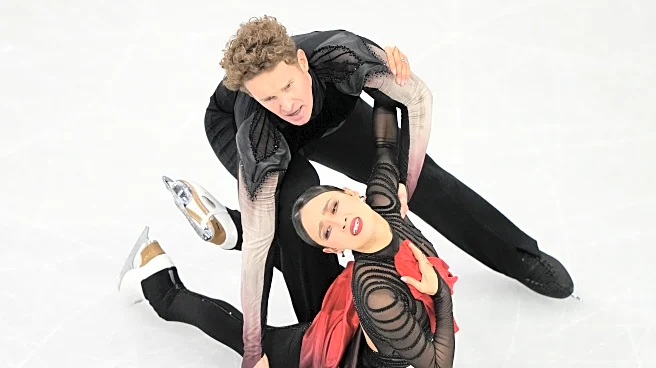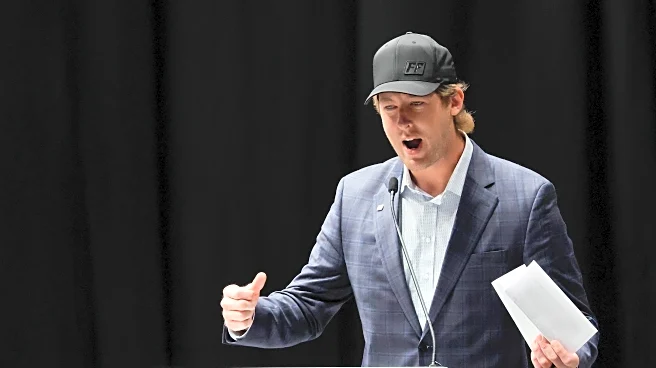It’s always interesting when time overtakes the dystopias of the past. In Stephen King’s 1982 novel “The Running Man,” the United States has fallen into a totalitarian state, divided between haves and
have-nots, where all movements can be surveilled and realistic video propaganda is easily generated. King’s book was set in the year 2025.
Edgar Wright’s new big-screen adaptation is fittingly but awkwardly timed. Arriving in the year of King’s imagined dystopia, its near-future has little in it that isn’t already plausible today, making this “Running Man” — while fleet of foot in action — feel a step, or two, behind.
“The Running Man,” of course, has already begat one movie. Paul Michael Glaser’s 1987 film starred Arnold Schwarzenegger as Ben Richards, the young father who out of financial desperation auditions for a lethal reality show where survival for 30 days means a $1 billion payday. (The movie was set in the distant year of 2017.) Times have changed, though. Wright’s film stars Glen Powell as Richards, a fairly exponential upgrade in smirking charisma.
This is, for sure, a dystopia with a genial spin. That’s not only the case with the dashing and overweening Powell but with Wright, a playful genre practitioner whose approach to apocalypse (“Shaun of the Dead”) is, by nature, comic. From the start, the darkest shades of King’s book have been snuffed out of this blandly entertaining remake that swaps out the brutalist 1980s nihilism of the Schwarzenegger movie for a satirical portrait of America lacking in bite and prescience.
It’s not like the 1987 “Running Man” was so great, either. But at least it locked into a tone and stuck with it. Wright’s movie has flashes of flamboyance that help, but it struggles to balance such violent science fiction with funny, over-the-top farce (care of Colman Domingo and Michael Cera ). That was basically the task, and success, of the “Hunger Games” films, which owed plenty to “The Running Man.” That’s one of the hard things about reaching backward for futuristic visions. “The Running Man” and its ilk have been getting ripped off for decades now. (Go back further and Richard Connell, author of 1924’s “The Most Dangerous Game,” probably has the biggest gripe.)
In the opening scenes of “The Running Man,” Richards has run out of employment options. At every turn, he’s been labeled insubordinate or has flirted too much with union representation for his radiation-exposed colleagues. With a baby home sick and a wife (Jayme Lawson) considering taking a shift at a dangerous nightclub, he resolves to try out for the many reality shows put on by the Network, the all-powerful, government-controlled media monolith. Richards strides from the grim and gritty Co-Op City through a checkpoint and into a gleaming, militantly policed metropolis. Though he’s sworn off participating in “The Running Man,” it’s the only show his particular combination of rage and sarcasm qualifies him for. In a word association test, he replies: Freedom? “No.” Anarchy? “When?”
The job is offered to him by the Network head, Dan Killian (Josh Brolin). Brolin is especially good as the slick, lying-through-his-teeth Killian, a fine addition to the many mean authority figures Brolin has played over the years, from the studio fixer of “Hail, Caesar!” to the police officer of “Inherent Vice,” or even the supervillain of “Avengers: Endgame.” He’s a pliable actor with many other modes, but Brolin may be the defining rock-jawed face of corrupt power of our time. (That goes, too, for his demagogue priest in the upcoming “Wake Up Dead: A Knives Out Mystery.” )
Even better, though, is Domingo as the show’s host, Bobby Thompson. Domingo has the grand flair for grinning showman types like these, even if some of Bobby T’s thunder has been stolen by previous roles like it. (“The Hunger Games,” again, with Stanley Tucci.) Entering the game at the same time are a few other contestants (Katy O’Brian, Martin Herlihy). Once the game is on, they’re dropped back into the world with a head start. Anyone who recognizes them can turn them in for a reward to the armed hunters in pursuit. The hunters are led by the face-covered Evan McCone (a wasted Lee Pace). Floating drone cameras capture the action for live broadcasts.
This is, at first, a fun game of hide-and-seek, stretching from New York to Boston to Maine, that allows for a few enjoyable cameos. Cera essentially plays an adult Kevin McCallister if he had grown up to be a paranoid anarchist with the same fondness for “Home Alone”-style booby traps. But while “The Running Man” always maintains a forward-moving baseline, Powell’s Richards isn’t a compelling enough character to make the ride especially rewarding. So far, Powell has been best in looser films like his two with Richard Linklater: “Everybody Wants Some!!” and “Hit Man.”
Wright, who penned the script with Michael Bacall, has lately been drawn toward darker tales and bigger scales, with mixed results. But while he’s long been a talented juggler of genres, “The Running Man” struggles to mix comic hijinks with weightier themes of inequality and antiauthoritarianism. Those driving concepts come off as hollow in a big-budget, IP-draining reboot that’s too timid for King’s bleakest plot turns.
But if there’s one aspect of Wright’s film that feels genuinely connected to today, it’s the movie’s media metaphor. This isn’t so much in the Network, which seems stuck in a dated parody where everyone still watches the same show at night. It’s in a more AI-related subtext.
As Richards’ survival stretches into weeks, Killian employs ever-greater means of manipulation to sell him to the public as a villain. On the Network, he can make Richards do, or say, whatever he wants. Eventually, Richards wonders aloud: If he can use digital wizardry to do anything, why does he even need a human contestant? Killian’s answer is simply that human contestants get better ratings. This, at least, feels like an honest question for today. It’s just too bad “The Running Man” isn’t the act of resistance it wants to be.
“The Running Man,” a Paramount Pictures release is rated R by the Motion Picture Association for strong violence, some gore and language. Running time: 133 minutes. Two stars out of four.
